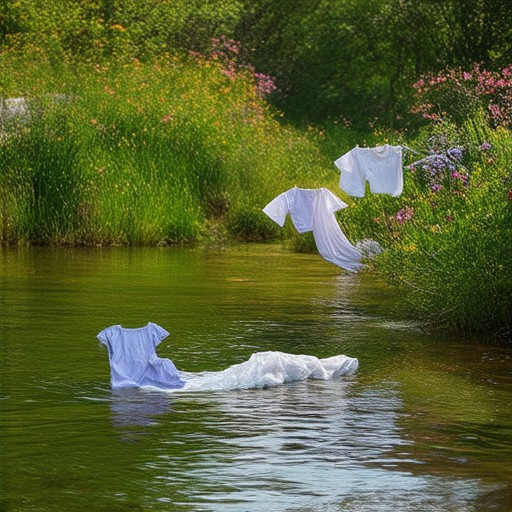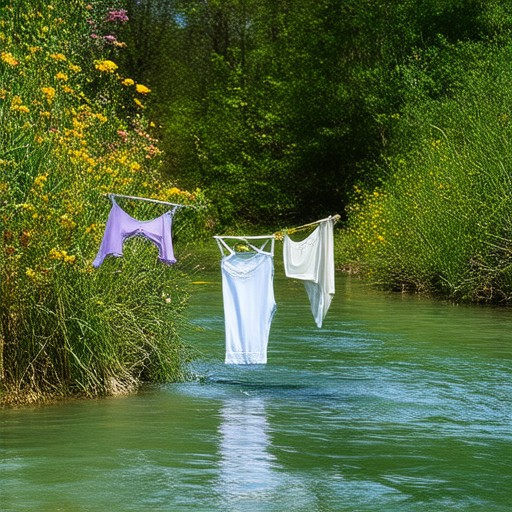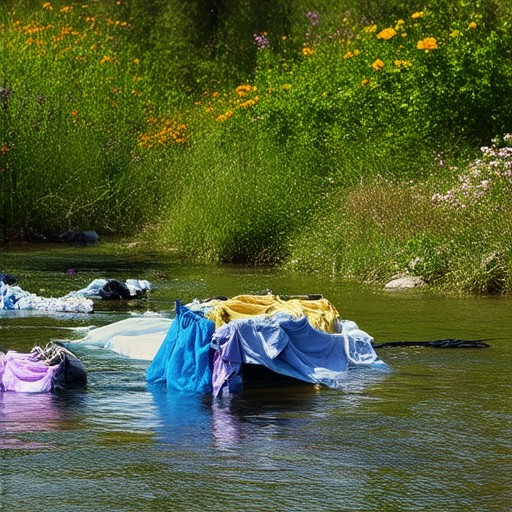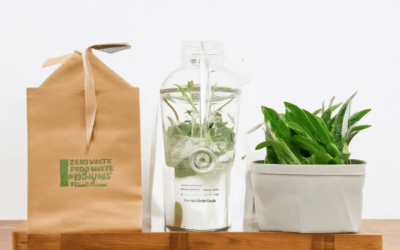Laundry is a daily task that often goes unnoticed, yet it plays a significant role in our households’ environmental footprint. Making the switch to eco-friendly laundry practices can seem overwhelming, but small changes can lead to a big difference. From reducing water and energy consumption to minimizing waste and chemical use, there are countless ways to make your laundry routine greener. Whether you’re looking to adopt basic laundry tips or seeking out the best eco-friendly laundry detergent, this guide offers practical advice and insights to help you create a sustainable laundry routine. By understanding the golden laundry rule and exploring natural cleaning agents, you can significantly reduce your impact on the planet while enjoying the benefits of biodegradable laundry detergents. This comprehensive overview covers everything you need to know, from optimizing laundry cycles to choosing the right eco-friendly products, ensuring your laundry habits are as gentle on the earth as they are on your family.
Key Takeaways
– Use cold water to cut energy costs and reduce environmental impact.
– Opt for eco-friendly cycles in your washer to save energy and preserve fabrics.
– Switch to biodegradable, phosphate-free laundry detergents to protect water systems.
– Minimize water usage by adjusting cycles to match load size.
– Avoid partial loads to reduce energy waste and water consumption.
– Adjust spin speeds to reduce drying time and lower energy use.
– Choose eco wash over quick wash for lower energy and water consumption.
– Select biodegradable, phosphate-free detergents for a greener laundry routine.

What is the Most Environmentally Friendly Way to Wash Your Clothes?
Eco Planeta Verde believes in promoting sustainable living through simple, effective practices. Here’s a step-by-step guide to washing your clothes in the most environmentally friendly manner:
- Hand Washing: Hand washing is the most water-efficient method. Use cold water, as hot water consumes energy and heats the water unnecessarily. Add a small amount of biodegradable detergent, like those made from plant-based ingredients, and gently agitate the clothes.
- Using a Front-Loading Washer: If you prefer machine washing, opt for a front-loading washer. These models are more energy-efficient than top-loading ones, as they require less water and energy. Consider setting your washer to a short cycle to save resources.
- Air Drying: After washing, hang your clothes to air dry instead of using a dryer. Dryers consume a significant amount of energy and contribute to fabric shrinkage. On sunny days, line drying is especially effective and helps reduce your carbon footprint.
Eco Planeta Verde encourages everyone to adopt sustainable laundry routines. Small changes can make a big difference in preserving our planet for future generations. Visit our sustainable living tips for more eco-friendly ideas!
What is the golden laundry rule?
The golden laundry rule is a simple yet effective strategy to optimize your laundry routine. The rule states:
- Only wash the clothes that are currently in your laundry basket.
This rule helps save time, water, and energy while promoting sustainability. By focusing only on the clothes that need washing, you reduce unnecessary cycles and minimize waste.
Why follow the golden laundry rule?
Following the golden laundry rule offers several benefits:
- Saves Water: Washing only the clothes that are dirty reduces unnecessary water usage.
- Saves Energy: Energy-intensive machines are used less frequently, lowering your carbon footprint.
- Saves Time: You won’t spend time dealing with unwearable or already clean clothes.
- Extends Clothing Life: Reducing the number of washes can preserve the integrity of your garments.
- Supports Sustainability: By minimizing laundry, you contribute to environmental conservation and reduce textile waste.
How to implement the golden laundry rule effectively
Here are some practical tips to make the golden laundry rule work for you:
- Use a designated laundry basket: Keep a basket in your bedroom for collecting dirty clothes. This makes it easier to remember to sort and wash only what’s needed.
- Sort clothes before washing: Separate colors, fabrics, and sizes to streamline the process and prevent overloading machines.
- Avoid partial loads: Wait until you have enough dirty clothes to run a full cycle. Partial loads waste resources and time.
- Consider alternative methods: For lightly soiled items or delicate fabrics, consider air drying or using a mesh laundry bag to extend garment life and reduce wear.
By adopting the golden laundry rule, you can create a more efficient and eco-friendly routine that works for you and the planet. Remember, every small change can make a big difference!

What is the Most Natural Way to Do Laundry?
The most natural way to do laundry involves using simple, eco-friendly ingredients that minimize harm to the environment and your clothing. Here’s a step-by-step guide to achieving fresh, clean laundry without harsh chemicals:
- Use Natural Detergent Alternatives: Opt for natural detergents like vinegar, baking soda, or plant-based soap. These ingredients are gentle on fabrics and reduce exposure to synthetic chemicals.
- Add White Vinegar for Brightness: Pour ½ cup of white vinegar into your washing machine along with your regular detergent. This helps remove dirt, stains, and odors while acting as a natural fabric softener.
- Increase Softness with Baking Soda: Add ¼ cup of baking soda to the wash cycle to help soften clothes naturally, reducing the need for fabric softeners.
- Try Eco-Friendly Laundry Detergents: Many stores now sell biodegradable laundry detergents made from plant-based ingredients. These are safer for both your clothes and the planet.
- Avoid Overloading the Machine: Ensure your washer isn’t overloaded to allow enough space for water and detergent to move freely, which prevents mold and mildew growth.
- Use Cold Water for Energy Efficiency: Washing clothes in cold water is gentler on colors and reduces energy consumption. It’s just as effective as hot water for removing dirt and stains.
- Dry Clothes Efficiently: Air dry clothes on racks or hang them up to reduce reliance on the dryer, which can cause wear and tear on fabrics and consume a lot of energy.
Eco Planeta Verde recommends exploring these natural laundry hacks to create a more sustainable routine. By making small changes like using vinegar and baking soda, you can significantly reduce your carbon footprint while keeping your clothes clean and fresh. For more tips on sustainable living, visit our sustainable living tips page.

Most Eco-Friendly Wash Cycle
The most eco-friendly wash cycle involves several key steps to minimize environmental impact:
- Cold Water Use: Opting for cold water reduces energy consumption significantly, as heating water accounts for about 90% of energy use in washing machines.
- Eco Cycle Selection: Many modern washing machines offer an eco-friendly cycle that combines cold water with reduced spin speeds, preserving fabric integrity and saving energy.
- Biodegradable Detergents: Choose biodegradable and phosphate-free detergents to prevent harmful chemicals from entering wastewater systems.
- Minimize Water Usage: Use the shortest cycle or adjust water levels according to load size to conserve water.
- Avoid Partial Loads: Only wash full loads to reduce energy waste and water usage associated with partial cycles.
- Spin Speed Adjustment: Higher spin speeds can increase drying time, reducing reliance on energy-intensive dryers.
By incorporating these practices, you can create a more sustainable laundry routine that conserves resources and reduces your ecological footprint.
Is Eco Wash Better Than Quick Wash?
Determine which dishwasher cycle—eco wash or quick wash—is better depends on your priorities:
- Energy Consumption: Eco wash uses less energy compared to quick wash.
- Water Usage: Eco wash consumes less water, making it more efficient.
- Drying Performance: Quick wash may dry dishes faster but can cause damage or fog glasses.
- Cleaning Effectiveness: Eco wash may leave dishes slightly less spotless, though modern machines often perform well.
- Cost Efficiency: Eco wash saves money on utilities and extends appliance life due to reduced stress.
Choose eco wash for environmental impact and cost savings. Opt for quick wash only when urgency demands convenience over quality care. Always consult your appliance manual for cycle recommendations tailored to your model.
Eco Planeta Verde advocates for sustainable practices, encouraging responsible dishwashing habits. Explore our guide to eco-friendly cleaning for more tips. Also, check our appliance maintenance guide to extend your dishwasher’s lifespan.

Which Eco Laundry Detergent Works Best?
Eco-friendly laundry detergents are becoming increasingly popular due to their reduced chemical footprint and environmental impact. Here’s a breakdown of some of the best options available:
- Ecover – Known for its commitment to sustainability, Ecover offers laundry detergents made with plant-based surfactants and minimal packaging. Their products are biodegradable and come in recyclable containers.
- Seventh Generation – A leader in non-toxic cleaning solutions, Seventh Generation provides phosphate-free laundry detergents that are safe for septic systems and the environment.
- Method – Method combines effective cleaning power with eco-friendly ingredients like essential oils. Their detergents are packaged in recyclable materials and offer refills to reduce waste.
- Ace Hardware – Earth Friendly Products – These detergents are made with biodegradable ingredients and are packaged in recyclable bottles, making them a great choice for those looking for simplicity and sustainability.
- The Laundress – The Laundress uses gentle, plant-derived surfactants and is produced in a zero-waste facility powered by renewable energy sources.
When choosing an eco-friendly laundry detergent, consider factors like biodegradability, packaging sustainability, and the absence of harmful chemicals. Each option has unique benefits, so the best choice depends on your personal preferences and needs.




0 Comments